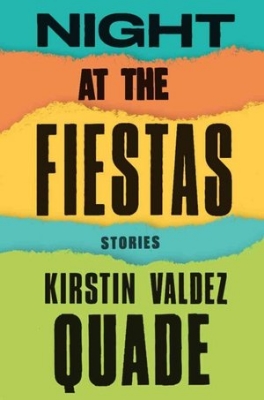By Dave Pezza
I’ve managed to wrestle the rains of SSS away from Daniel this week, and I made it a collection of music, literature, and booze sourced from the smallest state in the union: Rhode Island. The state has always had a dark and weird streak that Providence’s artistic element has managed to tap with wonderful effect. Overshadowed by Rhode Island’s beautiful beaches, Providence’s insanely delicious restaurants, and a grand and lasting tradition of political corruption, has a tattooed underbelly that details some of the longest and darkest history that America has to offer.
Song: “Bilgewater” by Brown Bird
Providence’s own Brown Bird was a powerful husband and wife folk duo that took folk to its darkest depths. The couple’s 2011 album “Salt For Salt” is especially foreboding and poetic, and “Bilgewater” sets the album’s tone. The lyrics perfectly match the song’s brooding melody, and feature David Lamb, the duo’s main writer, languishing over life’s toughest realities and the inherent beauty in humanity. “If the sun was always shining and our load always light…we’d break under the weight of any pain that ever came in this life,” Lamb all but screams toward the song’s conclusion. The words are an anthem for a region that forces its people to flip their collars up to the stiff cold and heavy snow every winter, that still suffers from a staggering recession, and constantly battles to maintain relevancy and importance. Even though Brown Bird has disbanded (Lamb passed away in 2014 after a battling Leukemia) its music continues to embody the place of its birth. And, like this week’s pick in spirit, it instills hope and encouragement to a state and region that is fed up with surviving and obsesses with thriving.
Spirit: Thomas Tew Authentic Pot Still Rum by Newport Distilling Company
Hailing from Aquidneck Island, Thomas Tew Rum is Newport Distilling Company’s effort in re-branding America’s oldest style of rum. New England was once the primary producer of rum, formerly America’s most prosperous and widely-enjoyed liquor. A darker, heavier, and stronger spirit than the Caribbean rum most of us are used to, New England rum features molasses instead of sugar cane and is made in a small pot still, which creates a bolder taste that balances out the naturally sweet flavors of thick sugars it is made with. Once America’s agrarian opportunities fully developed and distillers began to make use of the vast fields of corn and barley for bourbon and American-styled whiskeys, New England rum was all but forgotten. The rum is making a comeback as of late, however, and Newport’s Thomas Tew, named after a local colonial pirate and privateer known for his love of rum and the city, is one of the newer attempts by local distillers to not only bring back a style of rum but also re-create the region's colonial sanguinity. Providence and Newport alike were once thriving communities of distillers, artists, renegades, bootleggers, and smugglers.
If you’re drinking it straight, expect strong aromas of banana and oak with a sharp taste that’s heavy on deep molasses sweetness with an oaky, whiskey-like finish. As a cocktail though, this rum really stands out, especially when mixed with Coke Zero. All the previous flavors combine to form a cold, creamy sensation that tastes shockingly close to a liquor-fortified Wendy’s Frosty. If you are a whiskey lover looking for a new summer alternative, New England rum should be your next adventure, and Newport’s own Thomas Tew should definitely be your first stop.
Story: “The Temple” by H.P. Lovecraft
The king of the weird, Providence native H.P. Lovecraft has been an inspiration for many of our best, darkest, and weirdest sci-fi and supernatural writers, including the master himself, Stephen King. “The Temple” is one of Lovecraft’s earlier stories and is told through a scribbled message-in-a-bottle of a German U-boat captain. He and his crew survive the destruction of their vessel and find themselves drifting into a strange land with mysterious structures and symbols. Slowly, the captain and his crew descend into madness, losing their grip on reality. Lovecraft's character’s deteriorating sanity is riveting as it is terrifying. Like our song and booze this week, the eerie aura of the author's mystical land and mentally unstable characters in “The Temple” leads you down a dark and twisting wrought-iron staircase into the unknown darkness below.




















